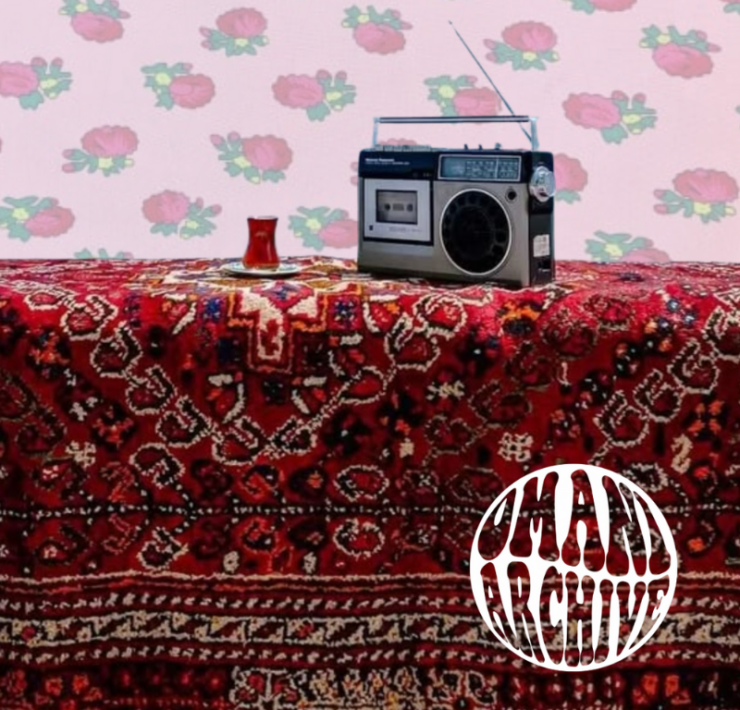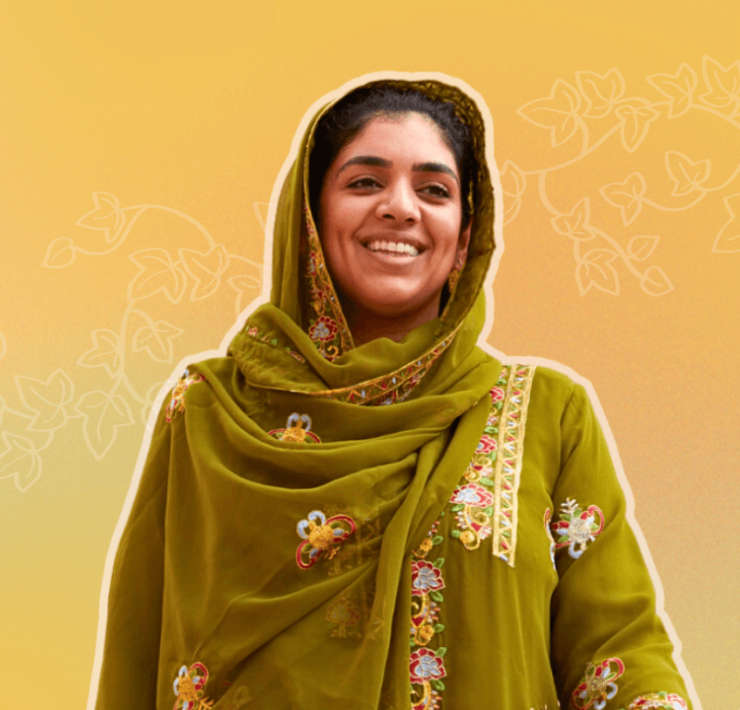By Adysen Moylan
At the intersection of ancient Mesopotamian trade routes lies the ancient Assyrian city of Nineveh, present-day Mosul. Mosul is one of the largest cities in Iraq and is home to a diverse, multi-ethnic and multi-religious population. Recently, it has been subject to sectarian violence and foreign occupiers. From the US invasion and occupation between 2003 and 2011 to, most recently, the Islamic State’s three-year occupation, Mosulis have suffered greatly, and their beloved city was largely destroyed.
In 2014, the world watched as IS, or Daesh in Arabic, violently plundered the city. Militants sought to disintegrate aspects of society by specifically targeting historical and cultural sites. The result was that 80% of the old city of Mosul was reduced to ruins. It was not just the occupation that left many dead, displaced families, and wreaked havoc on the city, but also the battle for liberation. Kidnappings, airstrikes, and daily crossfire occurred during this time. Mosul was a strategic stronghold of IS, and they named it the capital of their desired caliphate. By 2017, more than 217,000 residents of Mosul had been displaced. Even today, over 160,000 remain in camps for internally displaced people.
IS’s violent assault on the city, along with the mass displacement of its population, led Saker Al Zakarai to create the Bytna Foundation for Heritage and Culture in the heart of Mosul. Bytna, which means “our house” in Arabic, launched in the autumn of 2019, only two years after Mosul’s liberation. When Bytna’s doors opened after months of work, they shared, “In the heart of Hamam Al-Manqousha, our home is a safe space for children, youth, girls, pioneers, and all classes of society”. This thoughtful declaration highlights that Bytna aims to provide a place for all, starkly opposing extremist ideology and pursuing coexistence.
Bytna is much more than just a foundation; as well as their museum, Bytna is home to a cafe, a craft shop, a book collection, an art gallery, and more. Recently, they created an online virtual tour so that anyone can visit Bytna, no matter where they are in the world! Traditional Iraqi art, rugs, artefacts, and photos cover the centre, and more often than not, you will find tourists, community and regional leaders, and young people inside its doors.
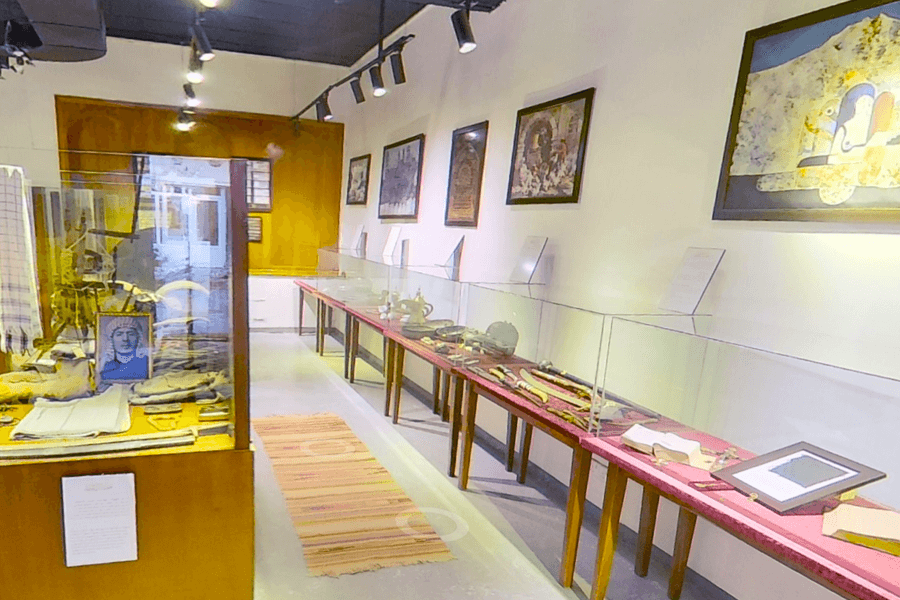
Bytna also hosts a variety of events, bringing together community stakeholders, youth, and international visitors for discussion panels, educational events, concerts, or poetry performances. Each of their events promotes social cohesion and dignity, rather than emphasising victimhood. The Bytna Foundation instead focuses on Iraqi resilience, and seeks to fill the need for psychosocial support after the trauma Mosulis have endured.
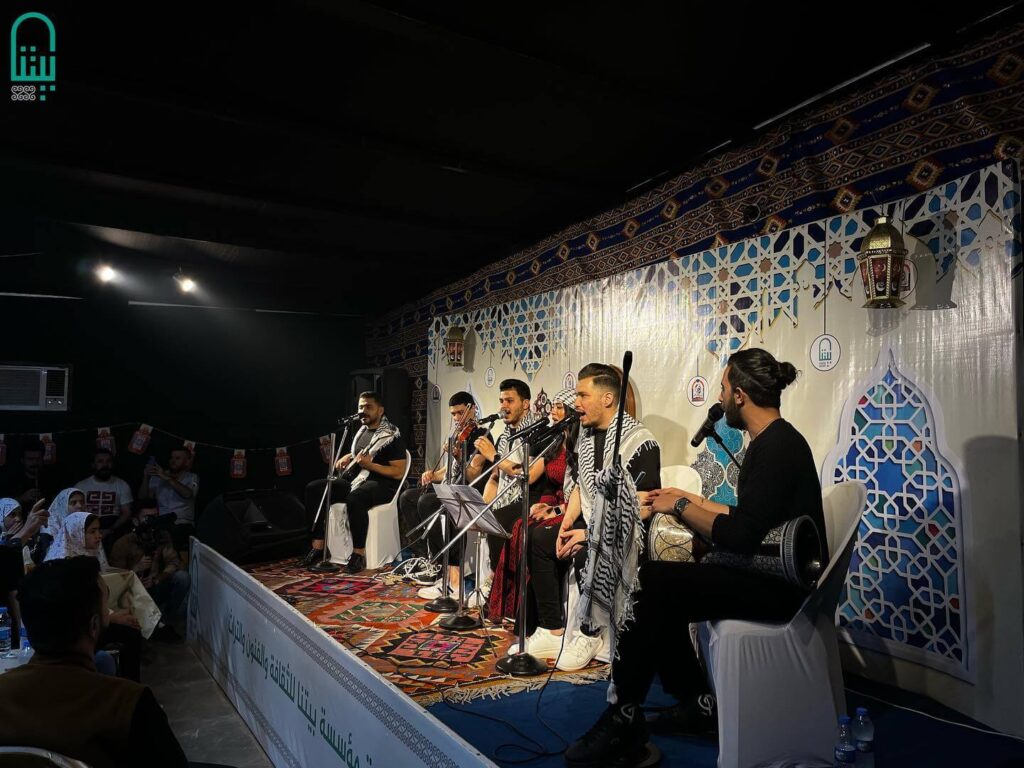
Locals such as Saker Al Zakarai exemplify the importance of hope; that it can sustain people who have experienced the unthinkable and allow them to imagine a new reality for the next generation. Home is not just a place to live but a place of safety, community, and shared values, and this is what Bytna is built upon.
After the displacement of thousands across Mosul and throughout Iraq, Bytna is committed to rebuilding the city so that families can return home safely, while encouraging ethical tourism. The Bytna Foundation believes that the “presence of visitors, tourists, and researchers in Mosul again after an interruption of more than 30 years is a significant success and a positive economic, social, cultural and security indicator for Mosul”.
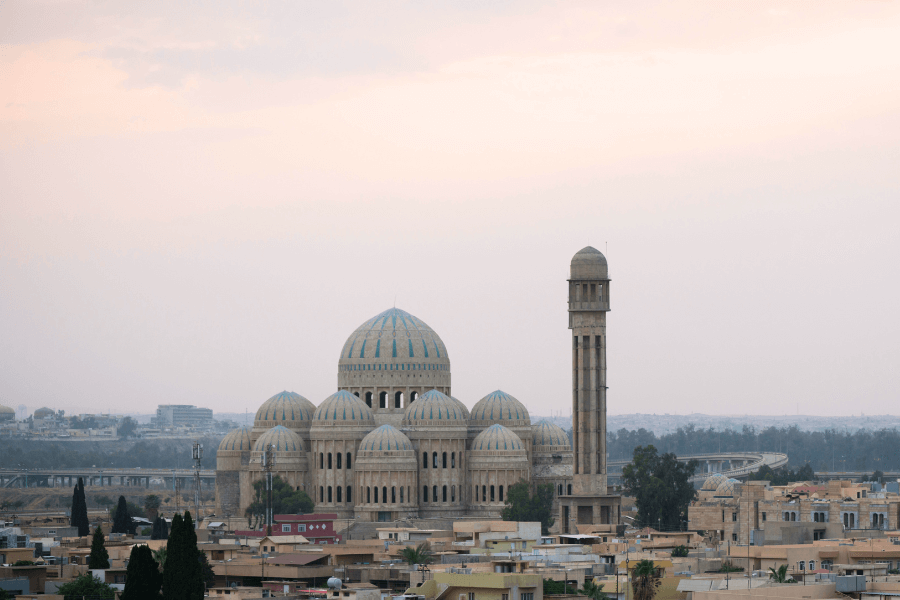
Btyna has received much international attention and support, including its current partnerships with UNESCO, the British Council, the EU, and UNAMI (United Nations Assistance Mission for Iraq). UNAMI highlighted the exceptional contribution Bytna made during the Ninewa Peace Festival in their magazine; “Held just a few days before parliamentary elections, the event brought together urban and rural communities from across the Governorate to Mosul in a spirit of togetherness to share priceless moments of brotherhood and showcase Ninewa’s rich cultural diversity”.
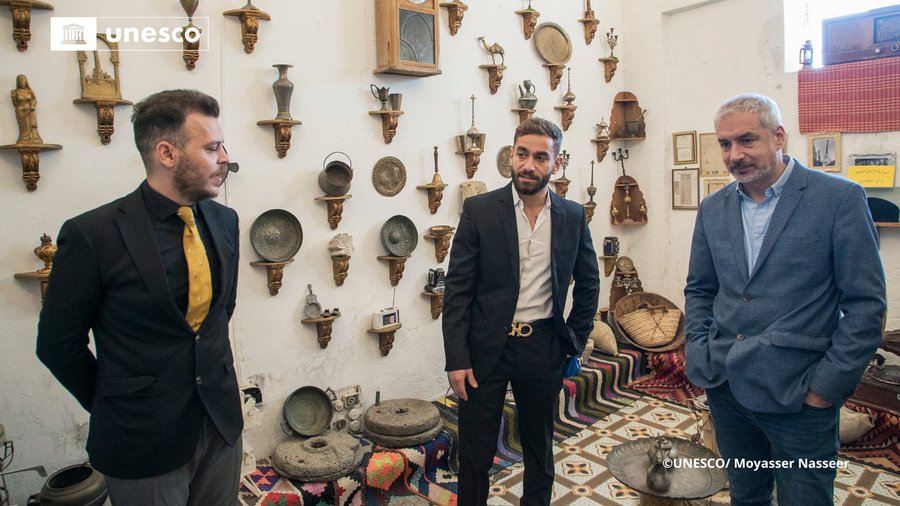
Image: UNESCO/ Moyasser Nasseer
Last year, Bytna was featured in Al Jazeera, highlighting the events they organised during the holy month of Ramadan. Bytna hosted a special ‘Ramadan evening’ with a hakawati, a traditional storyteller. The hakawati who performed shared with Al Jazeera that he chose to speak about “respecting your neighbour and pure love.”
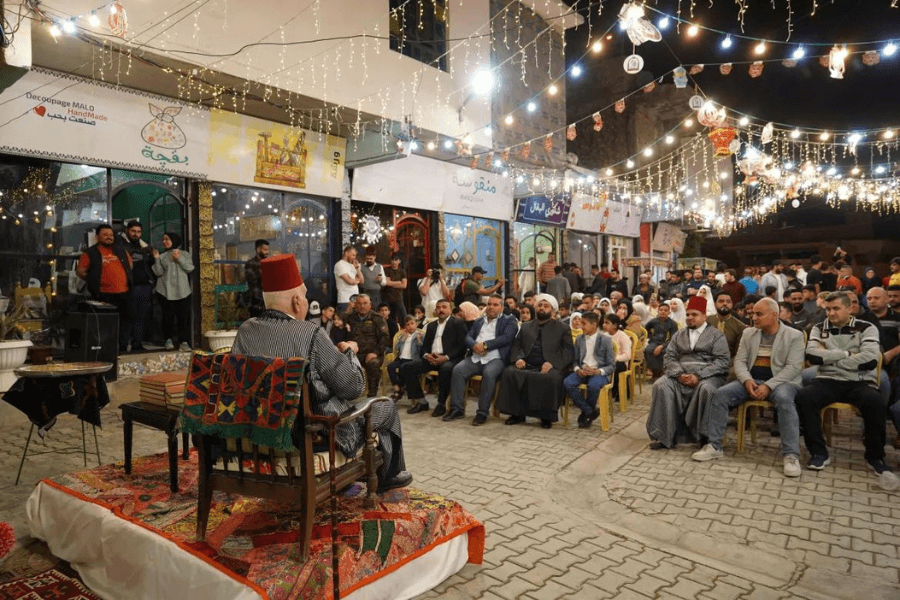
Image: Al Jazeera/ Ismael Adnan
More recently, in partnership with the University of Mosul, Bytna hosted an event focused on linguistic rights and their role in protecting human rights. The event was held in one of Mosul’s oldest churches and sought to promote religious tolerance and to find ways to create conditions for religious minorities to flourish. In recognition of their work to foster religious tolerance, a Yazidi religious leader from Sinjar visited Bytna to gift the foundation a fragment from the Temple of Lalish, the holiest site in Yazidism. The fragment is now displayed in a section of the museum dedicated to supporting the Yazidi population and commemorating the Yazidi genocide committed by IS in the summer of 2014.
After many dark years filled with a succession of conflicts and occupations, the Bytna Foundation for Heritage and Culture is a small renaissance of the heart of Mosul and Iraq. Mosul means “the linking point” in Arabic, and thanks to Bytna’s work, the city can once again live up to its name. Bytna’s legacy will be ‘linking’ the rest of the world to Iraq in a new way, not through tragic news, but through resiliency and triumph. Bytna is giving Mosulis a reason to return home, feeling safe and full of promise.
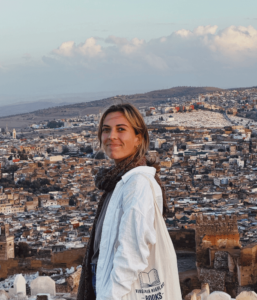
Adysen is a graduate student studying Conflict Analysis and Resolution in the D.C. area. After travelling to the Middle East and North Africa she became passionate about reshaping Western narratives about the region and inviting others to visit and do the same. In her free time you can find her listening to Fairuz or TootArd and dreaming of her next trip.
If you enjoyed this article, you may also like:
READING LIST | 19 Books To Help You Understand Iraq



